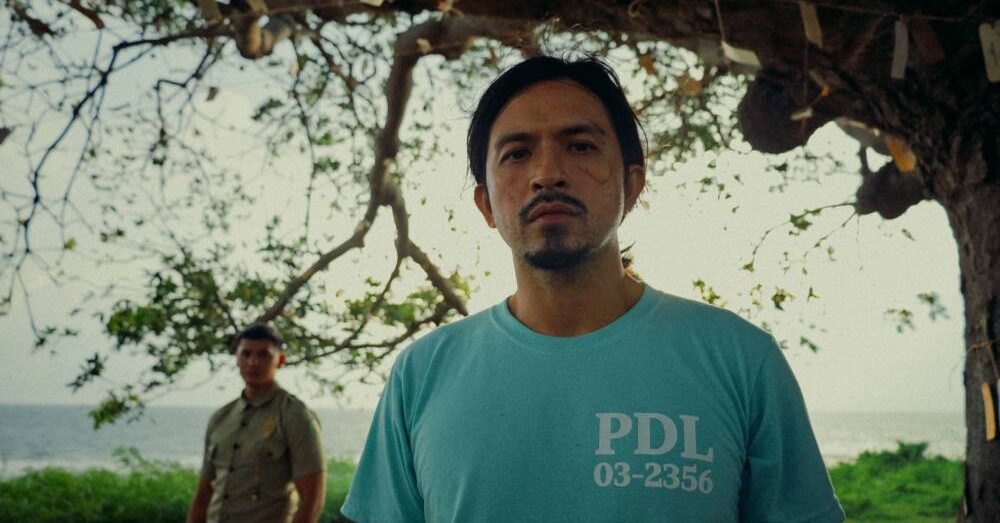My husband and I don’t yet qualify as frequent visitors of Sen. Leila de Lima at Camp Crame, even after finding out it isn’t really that difficult to visit; it has taken us no more than a week to get cleared.
We’ve gone five times, but wish we had gone oftener and more people visited, if only to see for how she was doing, help boost her morale, or just get to know her better.
After all, she is our, as the title of a book about her describes her in its title, “Prisoner of Conscience, Prisoner of Hope.” She just has to survive the great injustice done and come out of it stronger as much for herself as for us.
From the looks of things, she’s got what it takes. Nevertheless continuous efforts should be made to get her out—in freedom.
Visiting hours are set in stone. We once came too early and were asked to come back. But once our names check out, the iron gate opens.
We go through a body search, the whole proceeding recorded on camera. Not to worry, the police are quite professional about their business, firm yet polite, even friendly.
Consoled
Cell phones are not allowed, so I leave my handbag in the car. I’m told some people have been turned away at the gate, but it hasn’t happened to us. Always we’ve come to console, but always it is us who come away consoled and inspired.
Inside, we’ve found ourselves in the company of family, friends, loyal and dedicated staff, and sundry sympathizers of the senator’s.
On the occasion marking the first year of her imprisonment, we made a fair crowd, with a good sprinkling of notables—P-Noy, Mar Roxas, Sonny Trillanes, Kiko Pangilinan, Frank Drilon, Bam Aquino, Etta Rosales, Agot Isidro, Winnie and Christian Monsod, and Archbishop Soc Villegas.
Meeting members of Leila’s family leaves one in no doubt as to her intelligent, respectable, courageous and patriotic stock.
We like coming before Mass to have time to meet and mingle—we are simply honored by the company. Mass is held in the same small room where everything else happens. It is suffocating and hot despite the two electric fans going full blast and the anahaw fans that go around.
More often than not we don’t stay for lunch, but, when we do, the food is always so delicious—the senator is from Bicol and I just love gata and some (just some) chili on just about anything.
The CR is a bit of a challenge; the floor is wet from the spillage off the pail of water used for flushing. But my terror is a common one among people my age—slipping on the bathroom floor.
Our last visit was on May 20, Pentecost Sunday. Three priests—Fr. Robert Reyes, Fr. Manny Seranilla, whose mother is a De Lima, Fr. Albert Alejo, everyone’s Pareng Bert, remembered for arranging sanctuary for Edgar Matobato, the whistleblower on Duterte—concelebrate Mass.
Pentecost
We all shared our thoughts on Pentecost. Pentecost, according to Father Robert, is considered the birthday of the Church, celebrated 45 days after Jesus’ resurrection. With Jesus now gone, the apostles feared for their lives; they didn’t know what would become of them.
I remember in grade school that, whenever we were asked in Catechism class, “What is Pentecost Sunday?” our memorized answer was, “Pentecost is the commemoration and celebration of the receiving of the Holy Spirit by the early Church.”
This conjures a picture of the apostles with flames over their heads. Thus, to me, fire has been the symbol of the Holy Spirit, whose gifts are wisdom and discernment, and, most importantly, courage.
Pentecost Sunday would have been the perfect time for Luis Antonio Cardinal Tagle to have shown those three virtues in leading his priests and the faithful in the moral war the country is badly losing, precisely because all the institutions we rely on to protect us have all been compromised. One hopes—perhaps naively—that the Church would be the least susceptible to compromise.
In fact, in the week culminating in Pentecost and in the thick of Chief Justice Maria Lourdes Sereno’s battle against the majority of her court, which was poised to oust her on Duterte’s call, Cardinal Tagle called a meeting of bishops and priests. It ended in another big letdown, with the Church not moving from its timid policy of “critical collaboration” with the Duterte regime.
With Leila de Lima, the victim of persecution herself, defiant in detention and always finding a way to be sharply vocal about it, the Church should feel ashamed.













































